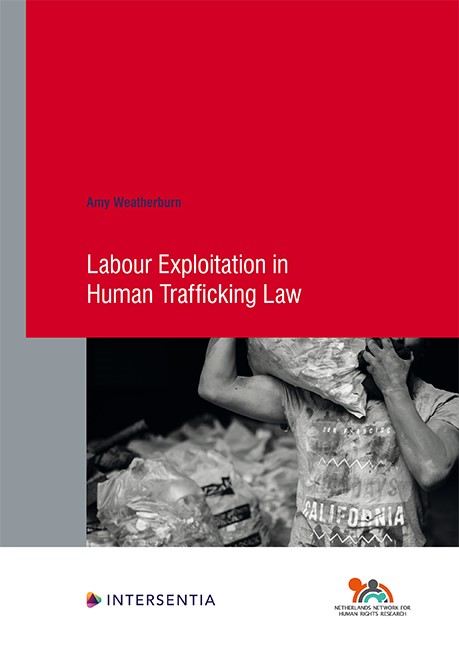Book contents
- Frontmatter
- Foreword
- Contents
- List of Abbreviations
- List of Tables
- Introduction
- PART I Exploitation in Political Theory
- PART II Labour Exploitation in Law
- PART III Labour Exploitation In The Criminal Law Of Belgium And England And Wales
- PART IV Conceptualising Labour Exploitation In Human Trafficking Law
- Conclusion
- Annex 1 List of Cases Accessed in Belgium and England and Wales
- Annex 2 Nationality of Victims and Civil Parties
- Bibliography
- Human Rights Research Series
Chapter 8 - The Judicial Interpretation of the Material Scope of Labour Exploitation in Belgium and England and Wales
Published online by Cambridge University Press: 10 December 2021
- Frontmatter
- Foreword
- Contents
- List of Abbreviations
- List of Tables
- Introduction
- PART I Exploitation in Political Theory
- PART II Labour Exploitation in Law
- PART III Labour Exploitation In The Criminal Law Of Belgium And England And Wales
- PART IV Conceptualising Labour Exploitation In Human Trafficking Law
- Conclusion
- Annex 1 List of Cases Accessed in Belgium and England and Wales
- Annex 2 Nationality of Victims and Civil Parties
- Bibliography
- Human Rights Research Series
Summary
Severely exploiting the labour of others is deemed to be of sufficient seriousness so as to be prohibited in criminal law. This position is emphasised in both jurisdictions where the judiciary assert that the behaviour must amount to criminal acts, and not just violations of employment laws, or – in the Belgian context – the Social Criminal Code. The Belgian cases further emphasised the need to recognise the “subtle distinction” between exploitation and illegal working, with the latter not always amounting to exploitation. A similar discussion also arises when determining a distinction between abuse and exploitation, wherein the former is not serious enough to amount to criminal conduct. The articulation of such distinctions is not always clear cut. A certain amount of interpretative assistance has been provided in the travaux préparatoires of the Law of 5 April 2013, on the basis of indicators that refer to social criminal law. However, the possibility of making a clear distinction between illegal employment as mere violations of social criminal law and human trafficking for the purposes of labour exploitation is still put into question, as Clesse et al. ponder: ‘How to distinguish between exploitation and undeclared work? By looking for an attack on human dignity. How to establish this infringement? By searching for offenses of social criminal law.’
In this chapter we will begin to resolve this conundrum by considering the judicial interpretation of the material scope of exploitation in the domestic case law analysis and the judicial alignment with the theoretical conditions of exploitation that were presented in Part I. We will ask, to what extent do the conditions of exploitation surface in the case law when interpreting the material scope of labour exploitation in law? We will see that whilst there are convergences with the conditions of exploitation that emerged from the theoretical analysis, the domestic judicial interpretation of labour exploitation does reveal additional features for consideration.
THE THEORETICAL CONDITIONS OF EXPLOITATION REVISITED
The alignment of the conditions of exploitation from the theoretical analysis with the judicial interpretation of exploitation in the domestic case law analysis reveal both similarities (notwithstanding terminological disparities) and differences in the understanding of the material scope of exploitation.
- Type
- Chapter
- Information
- Labour Exploitation in Human Trafficking Law , pp. 199 - 224Publisher: IntersentiaPrint publication year: 2021



